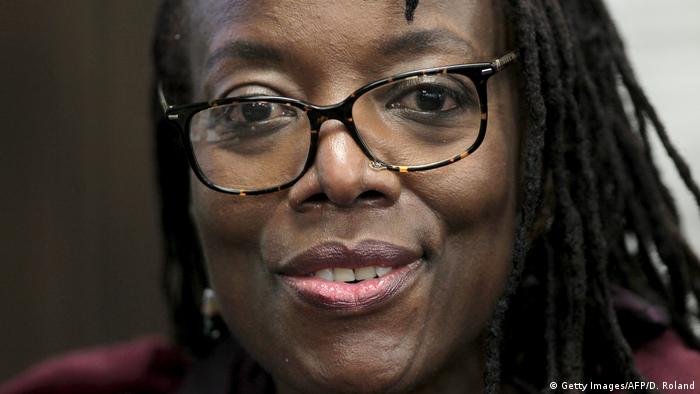She is a Star in Zimbabwe. The author Tsitsi Dangarembga is head of the African literature Festival in Berlin. The DW tells you what hurdles must you take to your home a new narrative to try forms.

Most of the journalists, the interview with Tsitsi Dangarembga, want to talk about her successful novel “The price of freedom”, 1988 released. It was not only the first book of a black woman from Zimbabwe, which was published in English, it was also honored in 1989 with the prestigious “Commonwealth Writers Prize”, and then translated into many languages. In 2018, the amendment landed on the BBC’s list of the “Hundred stories that shaped the world”. The honors may flatter, but bored with it Dangarembga also, that all this turns a plant: “I mean, I wrote it 30 years ago,” says the author, who curated this year, the African festival of literature”African Book Festival Transitioning from Migration”, the from the 4. to 7. April is taking place in Berlin.

The novel “Nervous Conditions” (dt.: The price of freedom) appeared in 1988
Three decades it took, to Dangarembga brought their novel trilogy around the main character from “The price of freedom” to an end. The second part, The “Book of Misery”, was released in 2006. The third book, “This Mournable Body”, was released only in 2018 and with great difficulty. “The manuscript was rejected by several publishers. At some point I was so desperate that I started to post statements on Facebook,” said Dangarembga at the opening ceremony of the African festival in Berlin. But fortunately, the renowned editor and literary critic, Ellah Wakatama Allfrey took care of, after all, the appearance of the book.
The novel was praised by the “New York Times Book Review” as “a masterpiece”. The review magazine “Kirkus Reviews” ruled that the book will give a concise insight into life in post-colonial Zimbabwe, which is characterised by misogyny and class struggle.
Filmmaker and activist
The 1959 in Zimbabwe, then Rhodesia-born author had already recognized in the 1980s that they must expand their field of activity, in order to secure their livelihood. She decided to study Film, was recorded in 1989 at the German Film and television Academy in Berlin and received his doctorate from the Humboldt University in Berlin in the subject of African studies. Meanwhile, she wrote the screenplay for the Film “Neria” (1993), which became the most-watched Film in Zimbabwe. The Soundtrack came from Zimbabwe’s music icon Oliver Mtukudzi, died in January 2019 unexpectedly.
Dangarembga turned in the course of their career, their own documentaries and feature films. Including “Everyone’s Child” (1996), the first feature film by a black Simbabwerin. And “Growing Stronger” by 2005. A documentary about two very different women in Zimbabwe is living with HIV.
Engaged in your home country
Around the turn of the Millennium, Dangarembga returned with her family from Germany to Zimbabwe, and devoted himself to various projects for the development of the film industry and the promotion of Directors. So she founded the women’s Film Festival in Harare. She is also the Director of the “Institute of Creative Arts for Progress” in Africa, an organization that supports audio-visual art in Zimbabwe.

Tsitsi Dangarembga, and the Nigerian author, Ben Okri
In spite of this various prestigious activities, and the numerous awards she has collected in Zimbabwe and around the world, reported Dangarembga, how difficult it still is to get funds for their films. Currently, she operates a Crowdfunding campaign to Finance your feature film project “Nnenna”, an adaptation of the novel “Trapped in Oblivion” from the author Ifeoma Theodore Jnr E about a girl who discovers her sexuality, but not with her mother can speak.
The Power of the culture industry
How Dangarembga on the Podium in Berlin under the dash, it is symptomatic of the cultural landscape of Zimbabwe, that even established filmmakers like you would have to fight the financing of their projects. The last production in the country, which could be equipped with a large Budget, the equivalent of 214.000 euros, was “Chinhoyi 7”. The epic tells the story of the struggle for liberation of the country. And this is significant, as Dangarembga. “If you can’t fit in the well-known narrative traditions, it is impossible to produce in Zimbabwe.”
To tell when you try differently, you have failed again and again to the cultural institutions. If you would not get any support from them, it is impossible movies. And that was the end. “A story is only complete when it is heard,” she says, sobered.

